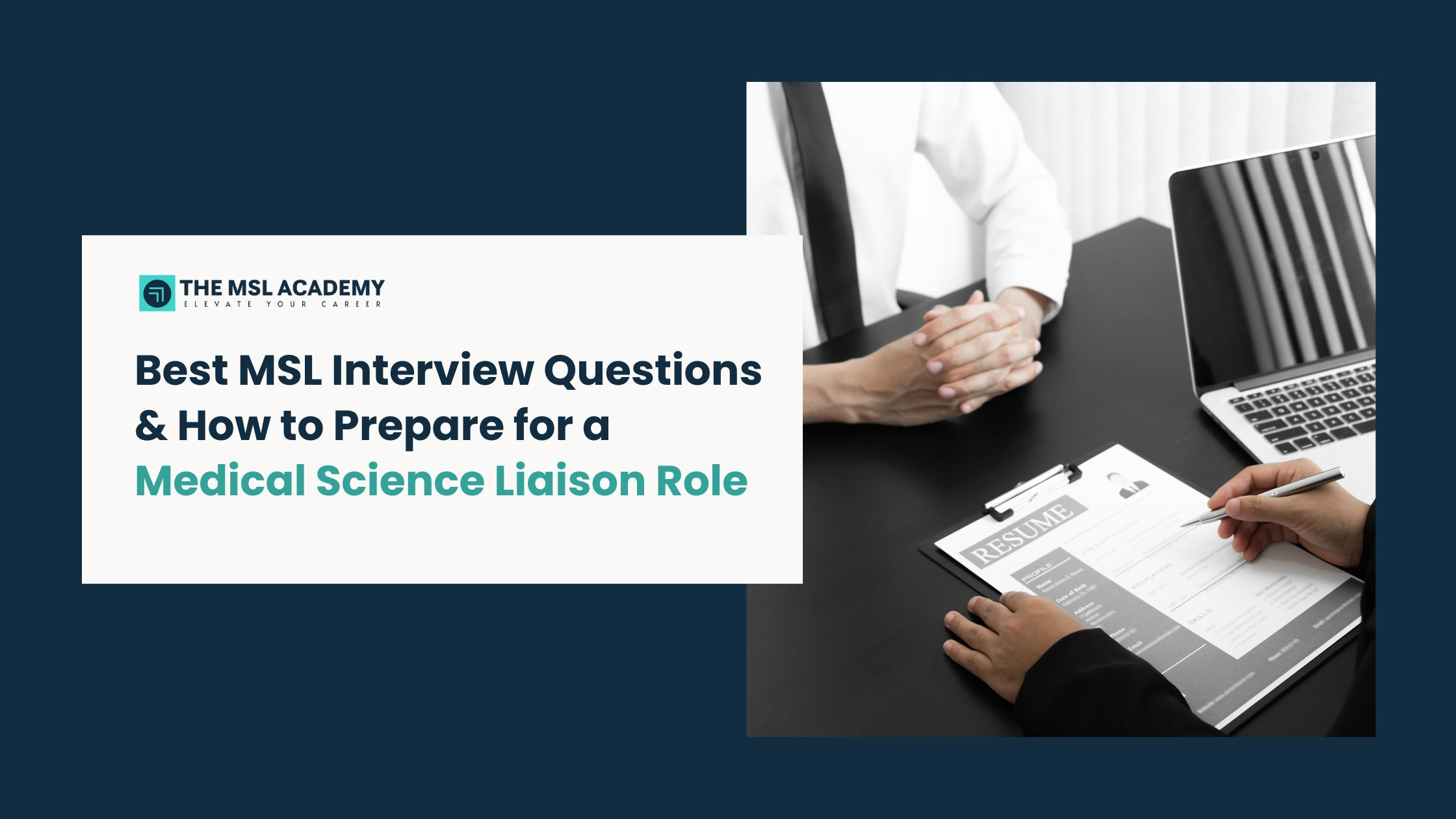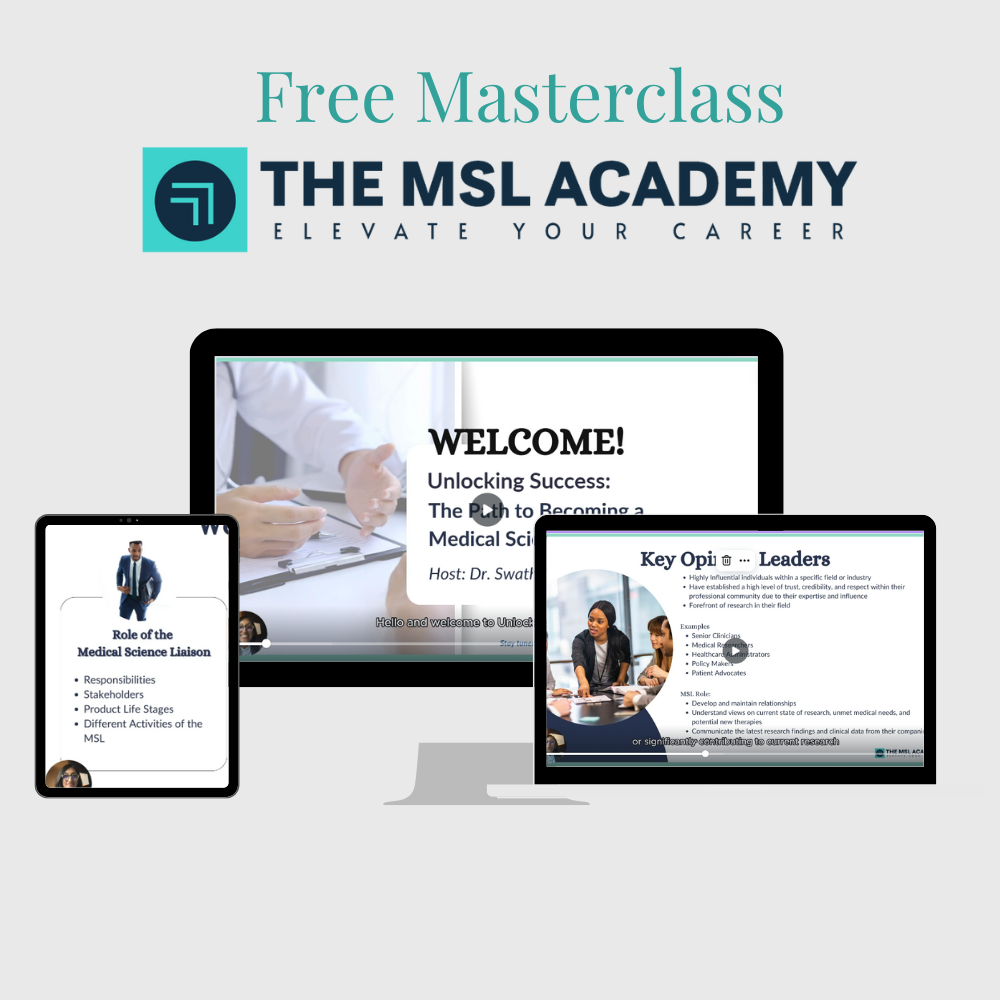Best MSL Interview Questions & How to Prepare for a Medical Science Liaison Role
Jun 20, 2025
Breaking into the Medical Science Liaison (MSL) role is a dream for many PharmDs, PhDs, MDs, and other advanced degree holders. The position offers a unique intersection of scientific expertise, strategic communication, and relationship building with key opinion leaders (KOLs). But to get there, you’ll need to nail the interview—a process that is rigorous, strategic, and unlike most traditional clinical or academic interview experiences.

In this guide, we’ll walk you through the most commonly asked MSL interview questions, how to answer them, and exactly how to prepare for your MSL interview to stand out in the pharma hiring process.
Why MSL Interviews Are Different from Traditional Job Interviews
MSL interviews are structured to evaluate more than just your scientific background. Companies are looking for professionals who can:
- Clearly articulate complex data
- Build strong relationships with HCPs and KOLs
- Work cross-functionally with sales, marketing, and clinical teams
- Demonstrate compliance awareness
- Show adaptability in a field-based, autonomous role
The pharma MSL hiring process often involves multiple rounds, including:
- A recruiter screen
- Hiring manager interview
- Scientific presentation
- Behavioral and STAR-format questions
- Role-play or scenario-based evaluations
- Final panel or leadership interview
How to Prepare for an MSL Interview: Step-by-Step

Step 1: Research the Company and Pipeline
Understand the company's therapeutic focus, recent trial results, FDA approvals, and pipeline strategy. Read the latest press releases and browse PubMed for relevant publications by company scientists or KOLs.
Step 2: Know the Product and Disease State (Therapeutic Area)
Review the mechanism of action (MOA), clinical endpoints, safety data, and differentiators for the company’s lead product(s). Understand the competitive landscape and standard of care.
Step 3: Polish Your Scientific Communication
Practice explaining complex clinical data to both lay and expert audiences. MSLs must adjust their language depending on who they’re speaking with—internal teams, KOLs, or cross-functional colleagues.
Step 4: Prepare STAR Format Answers
Many MSL interview questions use the STAR method (Situation, Task, Action, Result). Prepare at least 5 strong examples showing:
- Scientific acumen
- KOL interaction
- Cross-functional collaboration
- Problem-solving under pressure
- Navigating compliance or gray areas
Step 5: Practice the Scientific Presentation
Almost every MSL candidate is asked to give a 10–15-minute scientific presentation. You’ll be evaluated on:
- Clarity of communication
- Confidence and poise
- Slide design and visual storytelling
- Ability to answer tough follow-up questions
Choose a paper from a peer-reviewed journal, preferably in the company’s therapeutic area. Practice delivering it as if to a panel of KOLs.
Top 12 MSL Interview Questions (and How to Answer Them)

1. Tell me about yourself and why you want to be an MSL.
This is your chance to tie together your scientific background and people skills. Focus on your interest in translational medicine, communication, and bringing value to both internal teams and external stakeholders.
2. What do you know about our company and our pipeline?
This question evaluates your preparation and genuine interest. Go beyond what’s on the homepage—know about recent FDA approvals, updates via FiercePharma or FierceBiotech, ongoing clinical trials, and other therapeutic differentiators.
Pro Tip: Use ClinicalTrials.gov and press releases to impress with specifics.
3. Tell us about a time you had to explain complex scientific data to a non-expert.
Here, they’re testing your scientific communication skills. Choose an example where you tailored your language to the audience.
4. How would you build relationships with KOLs in your territory?
They want to see that you understand strategic KOL engagement. Talk about pre-call planning, identifying shared goals, post-meeting follow-ups, and long-term relationship cultivation. If you have not done this before, do not worry, think about the transferable skills you may have attained for a current or past role interacting with healthcare providers and/or other external stakeholders at your job.
5. Describe a time you faced resistance from a KOL, HCP, or external stakeholder. How did you handle it?
This question is about emotional intelligence and relationship repair. Use the STAR format and show how you stayed professional, clarified expectations, and continued to provide value.
6. How do you stay up to date on the latest clinical data?
Mention peer-reviewed journals, medical conferences, scientific alerts, and professional societies. Bonus points if you mention platforms like PubMed alerts or industry databases.
7. What’s your experience working cross-functionally with commercial or clinical teams?
Even though MSLs are non-promotional, collaboration is key. Highlight your ability to liaise across departments without compromising compliance.
8. Give an example of a project where you added strategic value.
Think of an instance where you went beyond your job description—initiating a clinical trial site, organizing a journal club, contributing to investigator-initiated trials (IITs), or mentoring peers.
9. Walk me through a clinical trial and explain its significance.
They’re testing your ability to analyze and communicate trial design, endpoints, limitations, and implications. Choose a high-impact trial, ideally in the company’s therapeutic area.
10. Why should we hire you as our next MSL?
End strong. Highlight your unique blend of qualifications: scientific depth, people skills, adaptability, and enthusiasm for the company’s mission.
Bonus: Behavioral MSL Interview Questions to Practice
- “Describe a time you received constructive feedback.”
- “Tell me about a time you had to learn something quickly.”
- “Describe a situation where you had to influence without authority.”
- “How do you manage ambiguity in a dynamic environment?”
Scientific Presentation Tips for the MSL Interview
✔ Choose a high-quality, peer-reviewed article—ideally aligned with the company’s therapeutic area.
✔ Keep slides clean and visual. Avoid clutter and use graphs, charts, and summary boxes to emphasize key data points.
✔ Know the limitations. Be prepared to discuss the trial's weaknesses as well as strengths.
✔ Anticipate tough questions. Role-play Q&A sessions with a mentor to boost confidence.
Questions to Ask Your Interviewers
Asking thoughtful questions is a key part of how to prepare for an MSL interview. Here are some that show your strategic thinking:
- What are the company’s expectations for KOL engagement in the first 6 months?
- How is scientific impact measured in this role?
- What’s the medical affairs team structure like?
- Are there opportunities to contribute to clinical trial support or IITs?
- How does the field medical team collaborate with commercial or marketing teams?
Common Mistakes to Avoid in the Pharma MSL Hiring Process
❌ Undervaluing soft skills. Science matters, but relationship building is what drives MSL success.
❌ Overloading your resume with academic terms. Focus on transferable skills, scientific communication, and KOL engagement.
❌ Winging the scientific presentation. Practice multiple times and anticipate detailed follow-ups.
❌ Ignoring compliance. MSLs operate under tight legal and regulatory frameworks. Show that you understand that boundary.
❌ Being vague in your answers. Use specific, data-backed examples using the STAR format.
Final Thoughts: Set Yourself Apart in the MSL Interview
Becoming a Medical Science Liaison is a highly rewarding career path—but one that requires strategic positioning, preparation, and persistence. If you’re wondering how to prepare for an MSL interview, remember:
- Know your audience
- Understand the science
- Practice with purpose
- Communicate with clarity
At The MSL Academy, we’ve helped hundreds of candidates transition into field medical roles with confidence. Whether you’re prepping for your first interview or polishing your scientific presentation, we’ve got you covered.
Ready to Land Your Dream MSL Role?
✅ Check out our Platinum Program for Aspiring MSLs
✅ Or book a Discovery Call with one of our MSL Coaches



